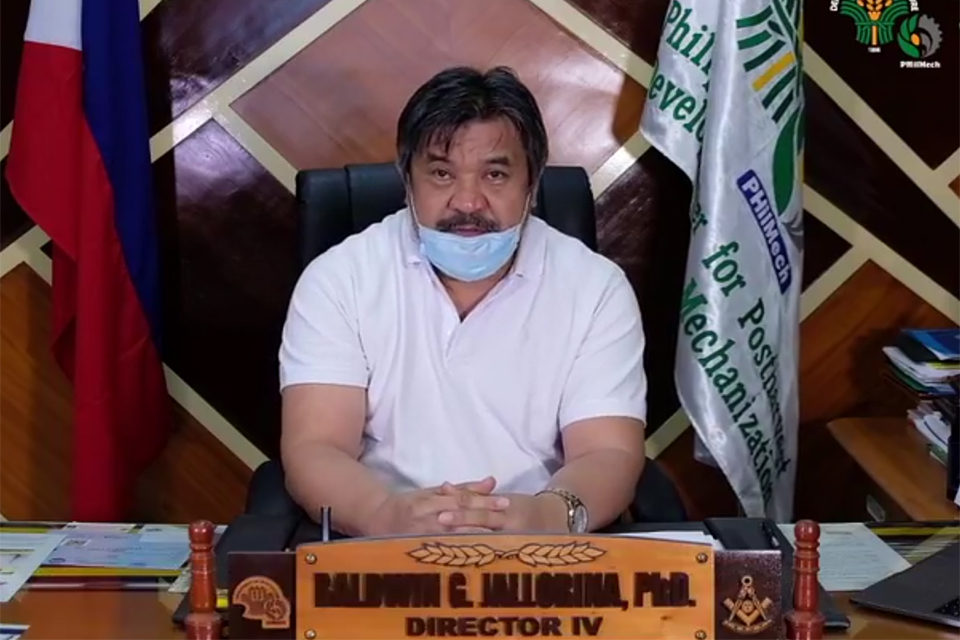
The Philippine Center for Postharvest Development and Mechanization (PHilMech) reiterated the importance of mechanization as unprecedented agricultural sector challenges loom further amid the persistence of coronavirus disease 2019 (COVID-19).
“In this pandemic period, we believe that rice mechanization is very relevant and timely especially to our farmers,” PHilMech Director IV Baldwin G. Jallorina said during his streamed remarks last May 25.
Aside from reducing the production cost of rice farming, Jallorina believes that modernizing agriculture will reduce our dependence on a precarious labor force.
“Since social distancing must always be observed and social gatherings or meetings are cancelled in this period, then use of excessive laborers in the field is discouraged. Utilizing rice machines is then applicable since only two to three people are needed to get the work done,” Jallorina noted.
“Promotion of FCAs of the use of rice machines from the farmers adjacent to their area can be done via SMS only so as to maintain social distance,” he added.
As PHilMech celebrates its 42nd anniversary, Jallorina envisioned to raise rice farmers’ productivity and improve competitiveness through mechanization.
“We will accelerate and fast-track the distribution of rice machinery to all the qualified FCAs nationwide. With this, we can help our farmers increase their production, save losses and overcome this crisis as one,” he assured.
Since 1978, PHilMech has been intensifying farmers’ competitiveness and upscaling the rice production in the country.
“For forty-two years, our research, development and extension efforts were geared towards transforming the future of agriculture. We improve and innovate operations, processing and systems in the agriculture and fishery sector with relevant and helpful interventions. Our goal is to transform the lives of our stakeholders especially our farmers and fisherfolks,” Jallorina said.
Dr. Jallorina also highlighted PHilMech’s accomplishments on the Rice Competitiveness Enhancement Fund (RCEF) – Mechanization Program.
“PHilMech has identified, evaluated and conducted field validation of 1,140 FCA beneficiaries. We have shortlisted and facilitated the signing of MOA of 624 FCA beneficiaries. Profiling and benchmarking of beneficiaries were also conducted among 359 out of 624 FCAs,” Jallorina said.
“Moreover, we have also conducted eight batches of bidding activities from pre-procurement up to post-qualification/evaluation,” he added.
PHilMech has also been conducting various training and information dissemination to make farmers more competitive.
“Under the Rice Extension Support Program for RCEF, we have produced and distributed 34,000 copies of Information, Education and Communication materials. Our dissemination activities have utilized radio, tv, newspapers and the internet,” Jallorina said.
“We also have conducted 2 batches of specialist training with 63 participants and 27 batches for FCA operators. A total of 542 FCAs and 1,142 operators were trained last year. Fifty FCAs were also trained on the management of farm service centers,” he added.
In line with this, PHilMech is ready to distribute the first batch of farm machines worth P2 billion to qualified farmer-beneficiaries and organizations.
Article by Jessica Marie B. Laturnas
